
Morocco
Covers and stamps / Morocco / Bisects
(Spanish)1920s registered cover to Tanger bearing differently overprinted 5c. and 30c. plus bisected 10c. on 20c. Express stamp tied framed Tetuan date stamps, repeated at top, arrival backstamp of a similar type.
£175

Jamaica
Covers and stamps / Jamaica / Official Mail / No. 1s / Bisects / Wrapper
1866 O.H.M.S. wrapper used to Spanish Town franked by bisected 1d. tied A52 obliterator with cds of Mandeville in association on reverse, front bearing arrival cancel; some slight tones, (S.G. 1d.)
£325
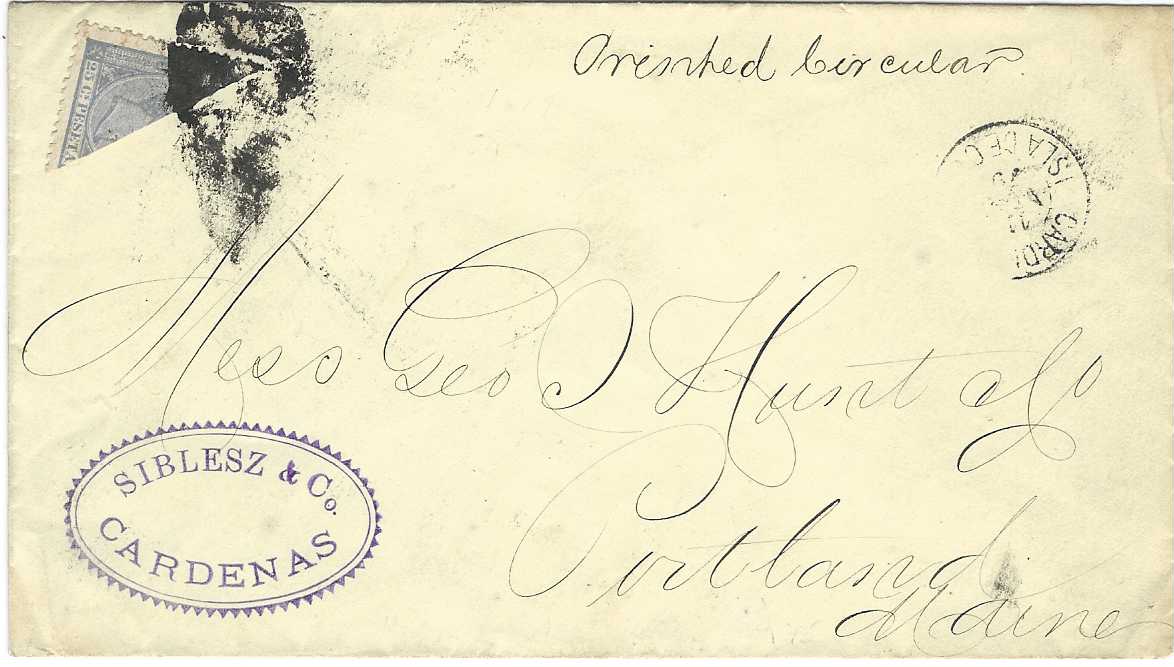
Cuba
Covers and stamps / Cuba / Bisects / Printed Mattar
1879 unsealed envelope annotated at top “printed Circular” sent from Cardenas with despatch cds at right, franked bisected 1876 25c. with black smudged canceller. Good example of 12 1/2c. UPU circular rate.
£75

Niger Coast
Covers and stamps / Nigeria / Bisects
1894 (SP 11) cover to Liverpool bearing three different bisects with 1892 2d. Jubilee issue vertical bisect, 1894 2d. vertical bisect and 1d. diagonal bisect, all tied Bonny square circle date stamps, red Liverpool transit bottom left. (SG. 3a, 47b and 52b.). Fine and attractive, rare three bisect cover paying 2 1/2d. rate.
£1675

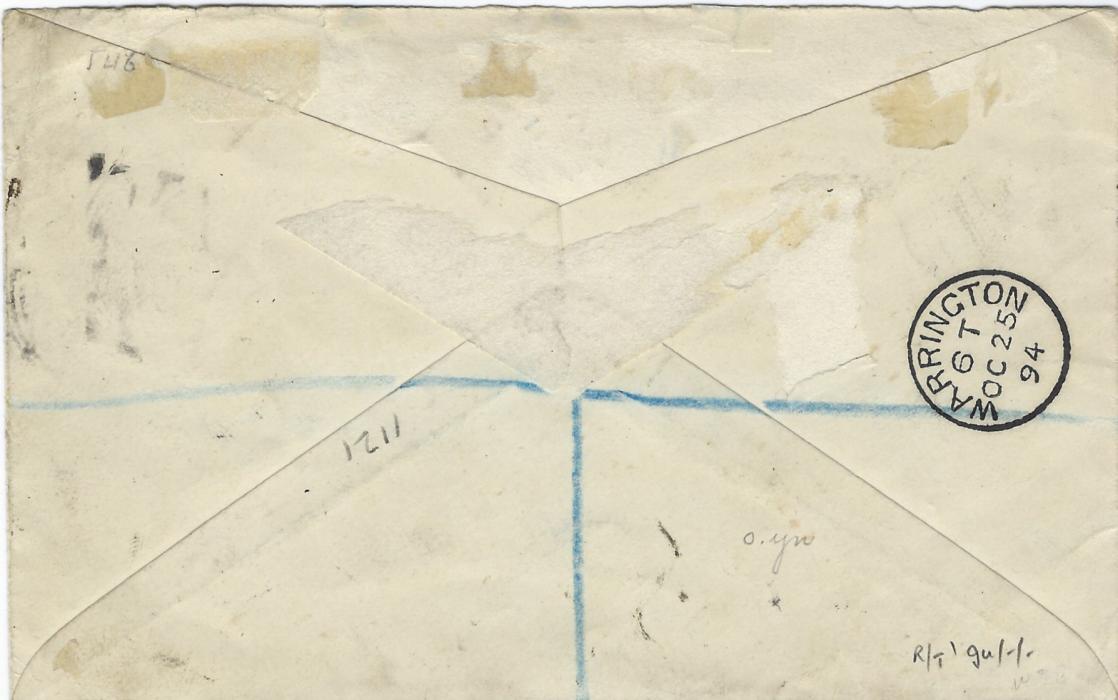
Niger Coast
Covers and stamps / Niger Coast / Squared circles / Bisects
1894 (SP 11) registered cover to England franked 1892 2d., 1894 1d. blue and bisected 1d.and 2d., making correct total of 4 1/2d. tied Bonny square circle date stamps, small 'R' handstamp at left with manuscript number, Liverpool transit on face and Warrington backstamp. fine and attractive.
£1175

Niger Coast
Covers and stamps / Niger Coast / Germany Seepost / Bisects
1894 (SP 11) registered cover to Luton franked British Protectorate/ Oil Rivers 1892-94 Great Britain oveprinted Jubilee 2d. together with 1d. lilac, both diagonal bisects, plus 1894 1d. and 2d. tied by three square circle Bonny date stamps. A fine, rare double bisect cover.
£1750
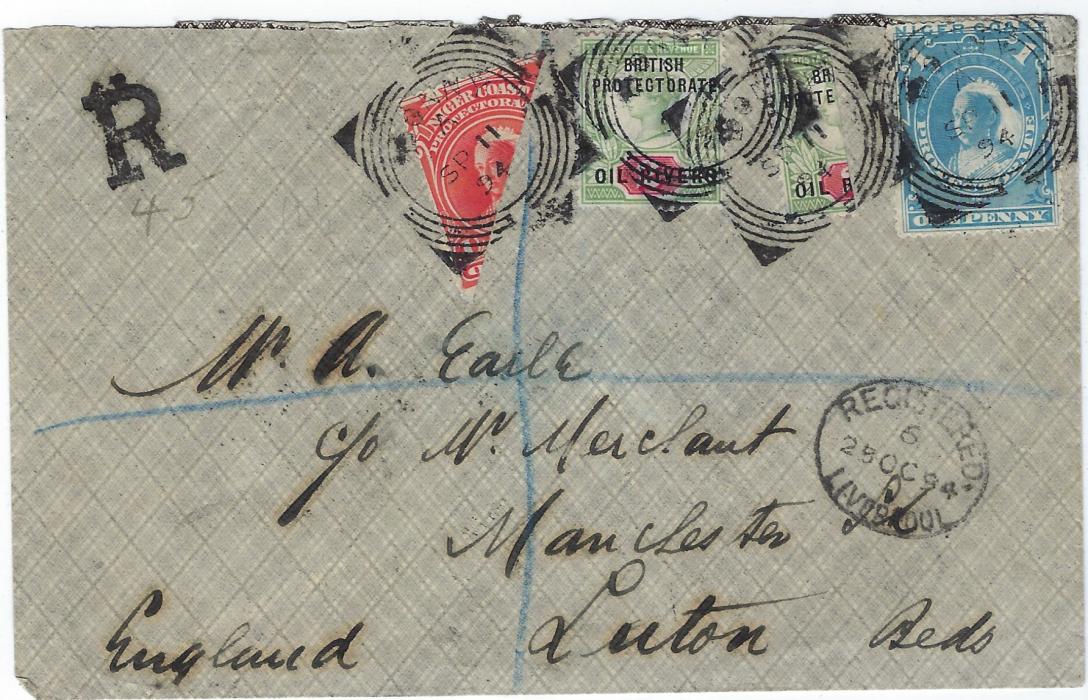
Niger Coast
Covers and stamps / Niger Coast / Bisects
1894 (SP 11) registered cover to Luton franked British Protectorate/ Oil Rivers 1892-94 Great Britain overprinted Jubilee 2d. vertical bisect together with normal, plus 1894 1d. and later 1d. orange vermilion diagonal bisect tied by four square circle Bonny date stamps. A fine, rare double, different issue bisect cover.
£1115

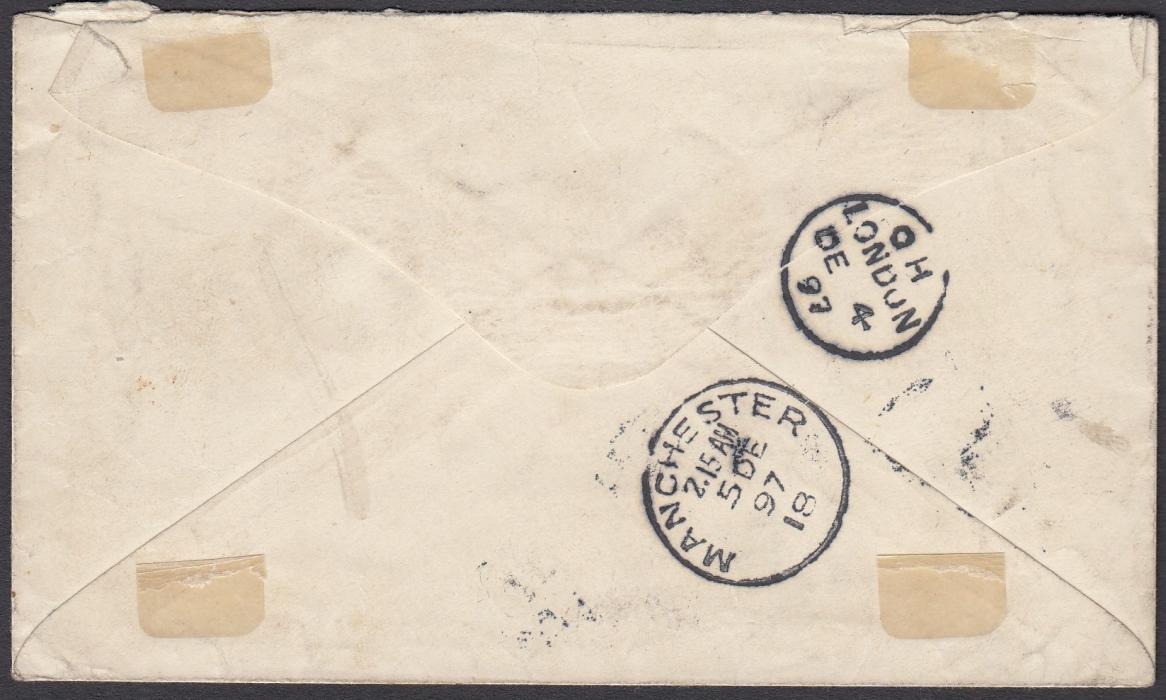
GIBRALTAR
Covers and stamps / Gibraltar / Postage dues / Bisects
1897 cover to Manchester franked 20c and bisected 10c, tied by 'A26' obliterator, the bisect being unauthorised a 'T' handstamp was applied and upon arrival in England a '1d/F.B./C/' handstamp charge raised, reverse with London and Manchester cds.
£495
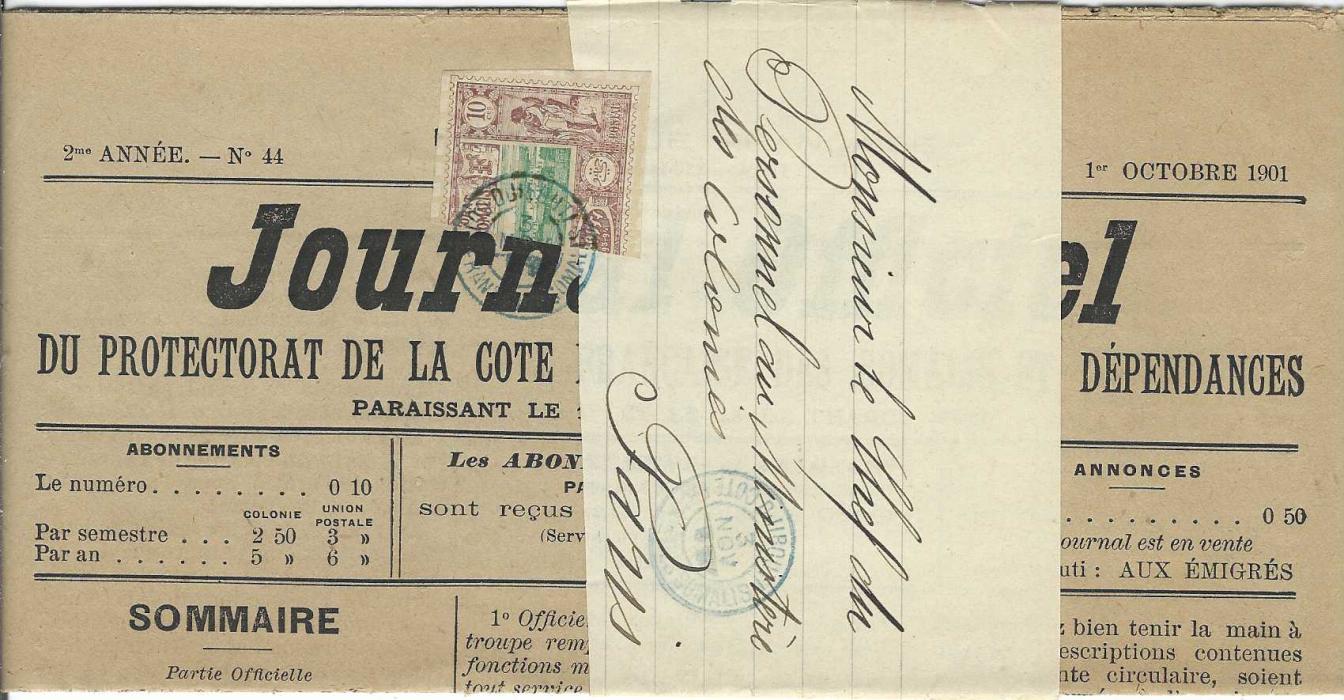
French Somali Coast
Covers and stamps / French Somali Coast / Bisects / Newspapers
1901 ‘Journal Officiel’ to Paris bearing bisected 10c. tied Djibouti cds in blue green with another strike on the banderole which itself is tied by the stamp and its cancel; fine and fresh condition.
£195
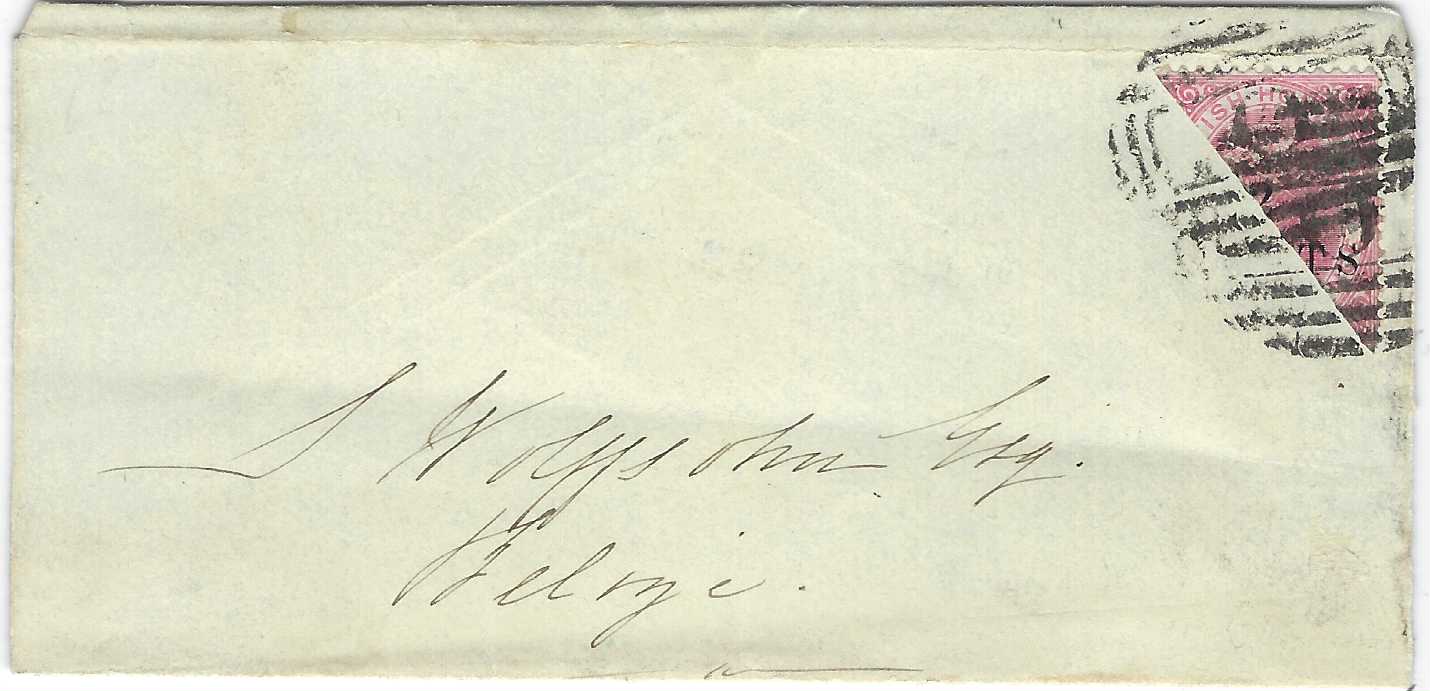
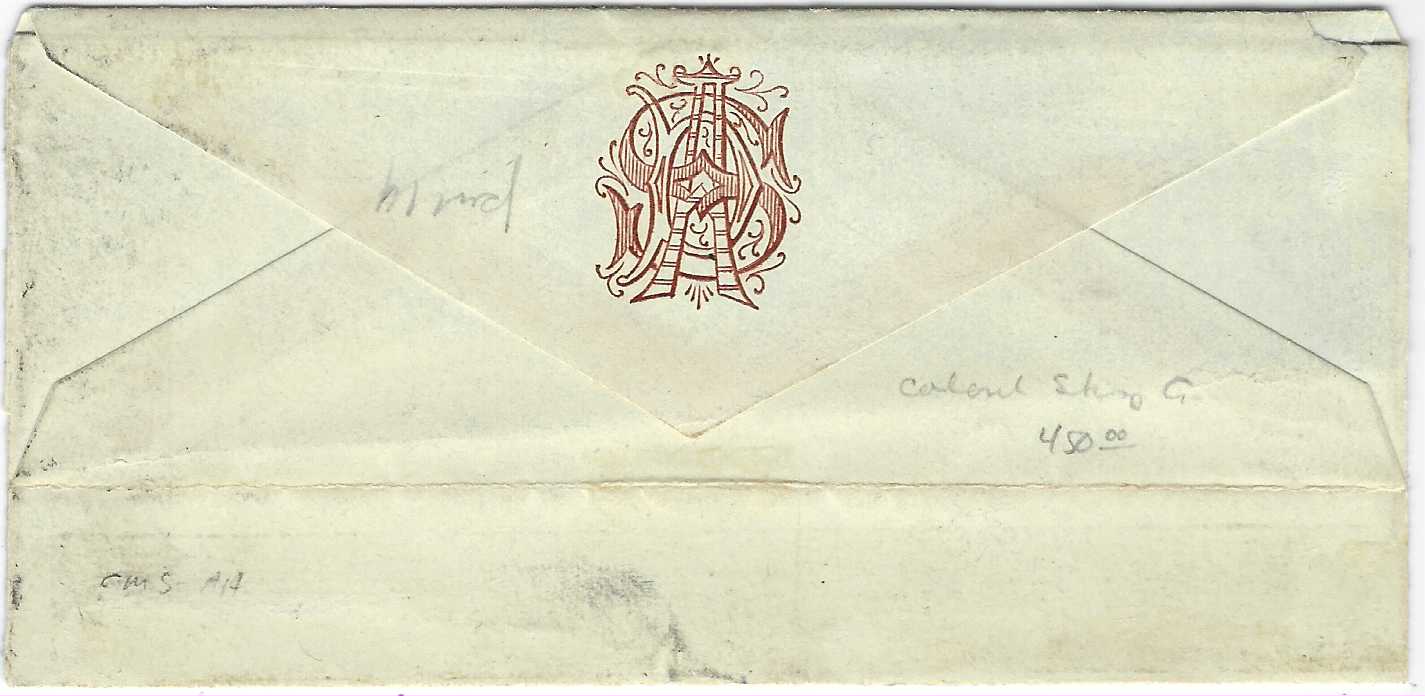
British Honduras
Covers and stamps / British Honduras / Bisects
Late `1880s local envelope franked 1888-91 London Surcharge 2c. on 1d. bisect tied by two ‘O’ obliterators, without further cancels; good correct usage.